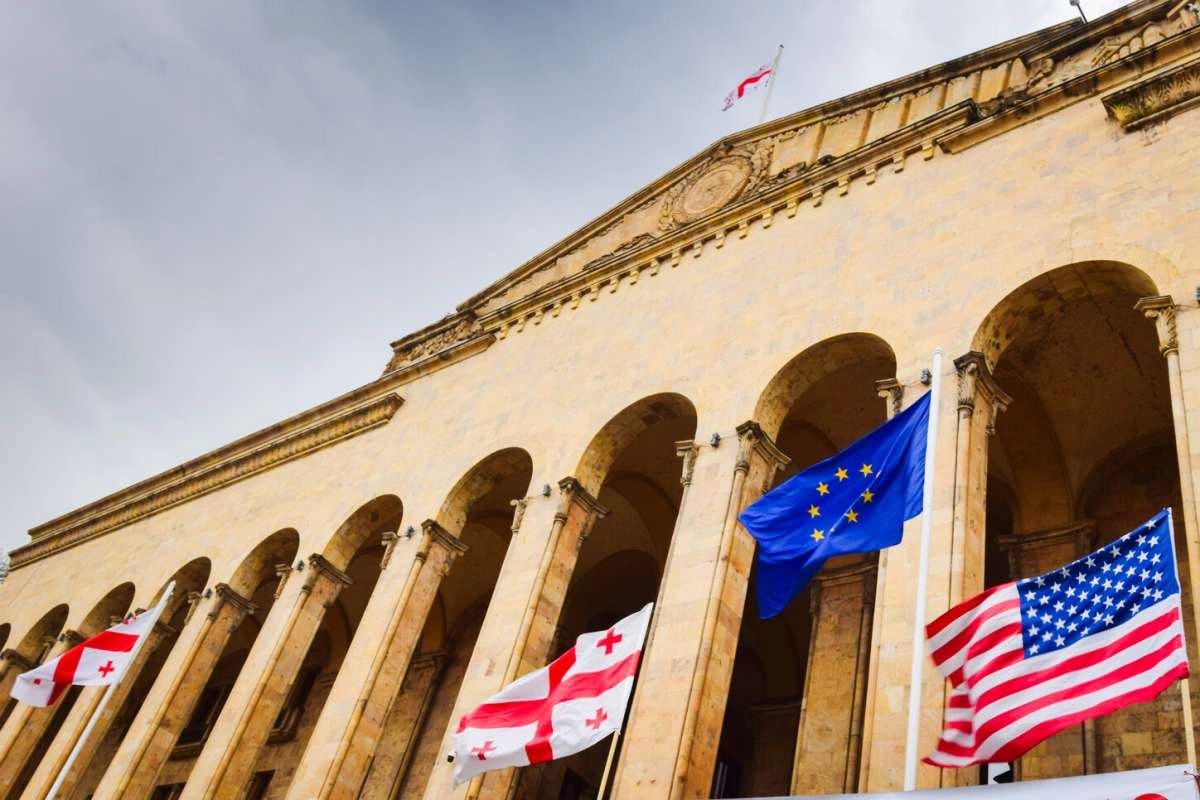
Illiberalism can be defined exactly as it sounds - opposition to or restriction of liberal ideas and actions. The stance seems to be having its own global renaissance over the last few years. Emil Avdaliani explores how the phenomenon is playing out in the Caucasian country of Georgia.
Image: EvaL Miko/Shutterstock
We live in the age of counter-Enlightenment. What once seemed like a collection of dispersed autocratic and simply illiberal states has now coalesced into a fully blown ideological movement. It is premised on not only resisting liberal internationalism on an ad hoc basis but also exporting authoritarian models of governance.
Illiberalism’s flag-bearers, such as China and Russia, have shown they can harness modernity. What was previously deemed an asset peculiar to the West, is now being fitfully mastered by its enemies, showing others that progress isn’t necessarily a direct result of liberal norms or vice versa.
Take China. For a long time, China was largely still seen as fitting within the framework of the liberal international order, so there was no ideological motivation to question the status quo. However, now it seems that the West was mistaken in believing that the obvious benefits of collaboration in trade might entice China into developing liberal norms similar to those in the West.
In China, as in Russia, the Western assumption was that poor economic conditions would force governments to liberalize or perhaps fall altogether. The reality proved somewhat different. Following the 2008 financial crisis, China gained power and boosted its reputation through a vast range of infrastructure investments worldwide. Later, during the Covid-19 epidemic, vaccine diplomacy lent them a hand. Russia is enduring significant sanctions yet is re-asserting itself in the South Caucasus, the Black Sea, and areas of the Middle East.
Illiberalism has often been characterized as unstable and a transitional step toward a liberal-democratic democracy. But, armed with the trappings of contemporary technology, it can prove ever more robust and resourceful, posing a far longer-term threat to established liberal norms than earlier attempts at communism. Failure to keep pledges destroyed the Marxist-Leninist ideal, but failure to keep promises in quasi-capitalist conservative nations will not bring down the system as swiftly as some believe.
A lack of tolerance might be seen as a belated reaction to the Enlightenment, autocrats perceiving it as a return to normalcy in state-to-state interactions. They extol the supremacy of the state and strongman or clique leadership, hauntingly evoking illiberal administrations between the two world wars, back when democracy couldn't withstand internal and external forces.
The examples of China and Russia, albeit quite different, have made illiberalism seem a realistic option amongst many factions in Europe and Asia. For example, the right-wing opposition parties in Georgia often reject western ideals and urge change in the whole democratic system. They also call for more robust connections with Russia as a geopolitical necessity to avoid retaliation.These issues are exacerbated by Russia's military presence on their sovereign land and unstable economies that allow China to expand. In former Soviet republics, in particular, several leaders are demonstrating their capacity to hijack liberal conceptions of state and economy to further their illiberal goals.
The West must consider this dilemma in the context of history. Hopes for the illiberal governing model's ultimate demise are not as self-fulfilling. One strategy is to improve the liberal order by enhancing rule-based policies. Another is to demonstrate that liberalism is more sensitive to economic and governance advancement. In those weak countries, ways to strengthen state institutions should be found.
Georgia is in a difficult spot. Invaded and partially occupied by Russia, its democracy experiences constant pressures. Internally it is prey to the rise of illiberal forces. Far-right parties and movements have already gained some traction among the population. The Georgian government is accused of harbouring some elements of intolerant thinking, as demonstrated by the recent jailing of Nika Gvaramia, head of the opposition TV channel Mtavari Arkhi. The illiberal trend is also visible in the way Georgia-Western relations are developing. Criticism is running both ways, causing damage to the trust which had been built up over decades of intensive cooperation.
Seen from a broader perspective, the trend in Georgia is a part of a more global phenomenon, which became most apparent with Trump’s emergence in the US and continues across many parts of Eurasia. As the pandemic ratcheted up, anti-vaxer campaigns merged well into the bubbling anti-liberal climate. This is what happened in Georgia. And though it is impossible to say how long the right-wing trend will last, the damage to democratic aspirations could linger. Much will depend on the West’s support for Georgia and perhaps how the Russian army fares in Ukraine. Kyiv’s victory could mark the end of illiberal expansion. The opposite, however, would likely usher in a much darker period for the region and Georgia in particular.
There could be a silver lining to the dismal news. The United States knows that it cannot merely aim to retain the old international order if it wants to maintain global dominance. With Ukraine under attack, it is ever more evident that the emergence of serious adversaries with hostile ideologies is bolstering America's determination - as occurred during World War II and the Cold War. But is it enough? Since coming to power in 2020, President Biden has insisted on upholding democratic and liberal ideals, suggesting that the US is willing to battle illiberalism. However, that battle needs to be fought on many fronts. Military power matters, but the battle for hearts and minds is just as important. Ultimately, whichever model prevails will define the world we live in. This will be especially decisive for smaller states bordering authoritarian powers.
Share on social media